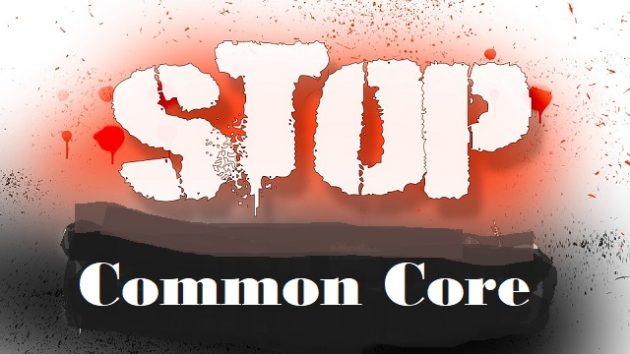Supreme Court asked to Overturn State Agreements Adopting Common Core
 ANN ARBOR, MI – Continuing its legal battle to stop the federal government from taking control over our nation’s elementary and secondary public schools, the Thomas More Law Center (“TMLC”), a national public interest law firm based in Ann Arbor, Michigan, last week, filed a petition in the U.S. Supreme Court asking the Court to review a South Dakota Supreme Court decision which upheld South Dakota’s participation in a consortium of states that advance the Common Core curriculum.
ANN ARBOR, MI – Continuing its legal battle to stop the federal government from taking control over our nation’s elementary and secondary public schools, the Thomas More Law Center (“TMLC”), a national public interest law firm based in Ann Arbor, Michigan, last week, filed a petition in the U.S. Supreme Court asking the Court to review a South Dakota Supreme Court decision which upheld South Dakota’s participation in a consortium of states that advance the Common Core curriculum.
The petition for review involves a lawsuit by 2 South Dakota mothers, Shelli Grinager and Amber Mauricio, who filed the lawsuit in state court challenging the constitutionality of their state’s implementation of Common Core through its participation in the Smarter Balanced Assessment Consortium. TMLC and local counsel, Robert J. Rohl, filed the lawsuit on their behalf on November 10, 2015, alleging a violation of the Compact Clause of the United States Constitution art. I, § 3, which provides that, “No State shall, without the Consent of Congress, . . . enter into any Agreement or Compact with another State . . .”
Kate Oliveri, the TMLC staff attorney who argued the case before the South Dakota Supreme Court and the principle author of the Petition, commented, “This case could have a significant impact in curtailing our behemoth executive branch and diverting the power back where it belongs—to the States and to the people. South Dakota has lost control over the education of its children. We want to give that control back.”
The Common Core State Standards (CCSS) were developed under the supervision of the National Governors Association (NGA) and the Council of Chief State School Officers (CCSSO), with funding from the Bill and Melinda Gates Foundation, to ensure that education and educational outcomes were consistent across the United States. The CCSS provides a set of standards they claim are “essential, rigorous, clear and specific, coherent, and internationally benchmarked.”
Most state governments, enticed by millions of dollars in federal grants, voluntarily acquiesced to federal control of their public schools, imposing untested educational standards and the curriculum designed to meet those standards on children and their parents. However, the CCSS have been under heavy fire since the beginning for a variety of grievances including: incomprehensible, political and inappropriate assignments; costly ties to big corporations; in-test advertising; the elimination of locally tailored and appropriate standards; and the emphasis placed on standardized testing.
TMLC’s Petition makes the argument that Common Core undermines the sovereignty of member states and nonmember states, and undermines the authority of Congress.
For a good understanding of TMLC’s positon, you can read the 23-page Petition here.
Richard Thompson, TMLC’s President and Chief Counsel: “The Federal government employs an insidious bureaucratic system, through which it directs what and how American students learn, and effectively eliminates the fundamental rights of parents to control the education of their children.”
Religious and private school educators have also criticized Common Core. In a statement, the Cardinal Newman Society, an organization dedicated to the defense and promotion of faithful Catholic education, said, “This school reform effort is nothing short of a revolution in how education is provided, relying on a technocratic, top-down approach to setting national standards that, despite claims to the contrary, will drive curricula, teaching texts, and the content of standardized tests. At its heart, the Common Core is a woefully inadequate set of standards in that it limits the understanding of education to a utilitarian ‘readiness for work’ mentality.”
Political Commentators Glenn Beck and Michelle Malkin repeatedly reported on the dangers of Common Core, with Malkin saying, “It’s about control, control and more control.”
Moreover, with the implementation of the Common Core State Standards, whose educational value has not been demonstrated, also comes an alarming explosion of data mining within the classroom. Student data are stored in databases designed to follow students from their entry into schools in pre-Kindergarten up through their entry into the workforce. These databases, through a complicated network of contracts and agreements, can then be shared with the federal government, contractors, researchers and other outside agencies. Testing corporations can analyze the test data, produce recommendations for how to “remediate” student weaknesses, and then sell that information back to states and school districts.



Common Core is pure unadulterated Communism~
This case SHOULD be a slam dunk, since the Constitution does NOT delegate ANY authority over education to the Federal Government, therefore the Tenth Amendment REQUIRES shutting down this, and ALL Federal meddeling AND spending in education and by Precedent ALL non Constitutional areas!!!!! We shall see….